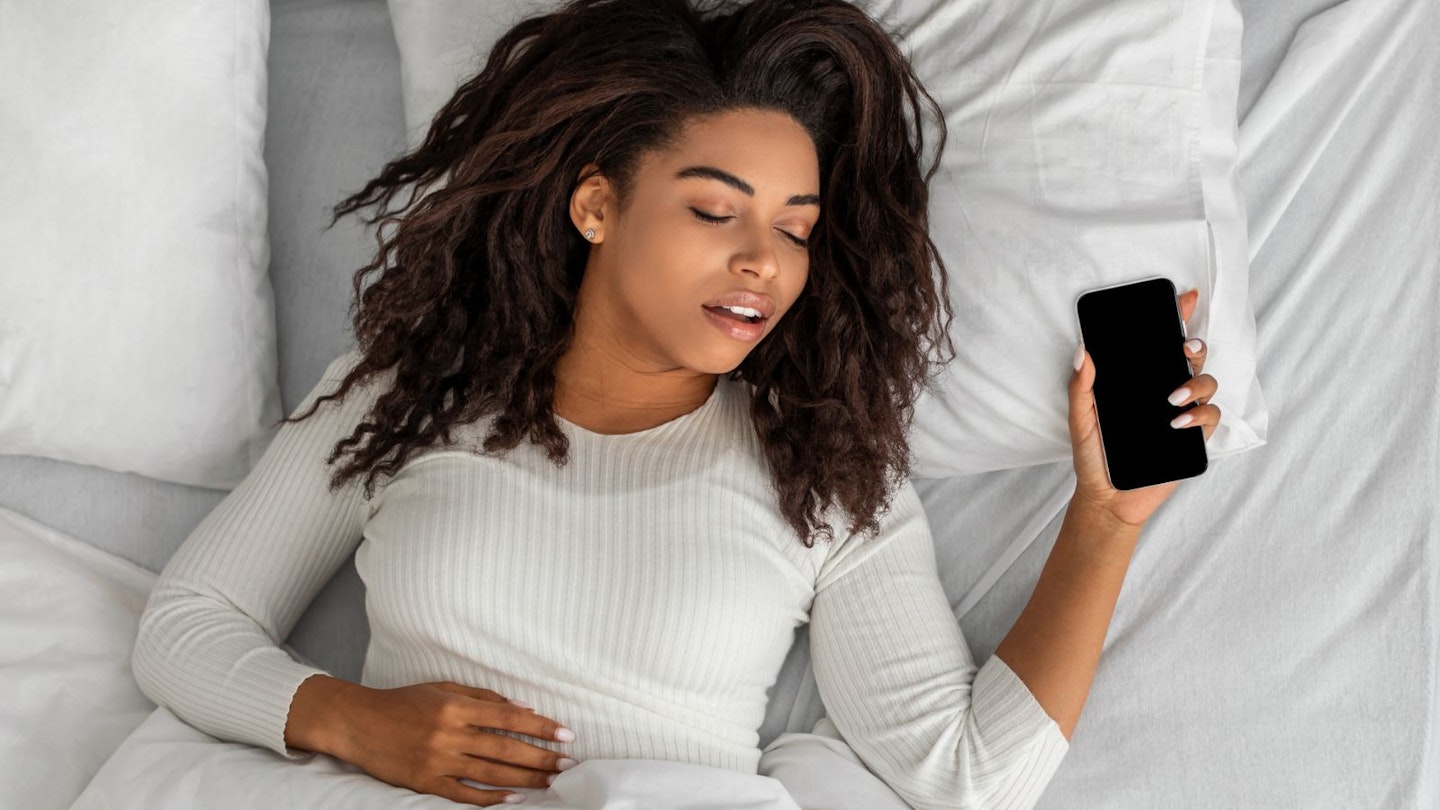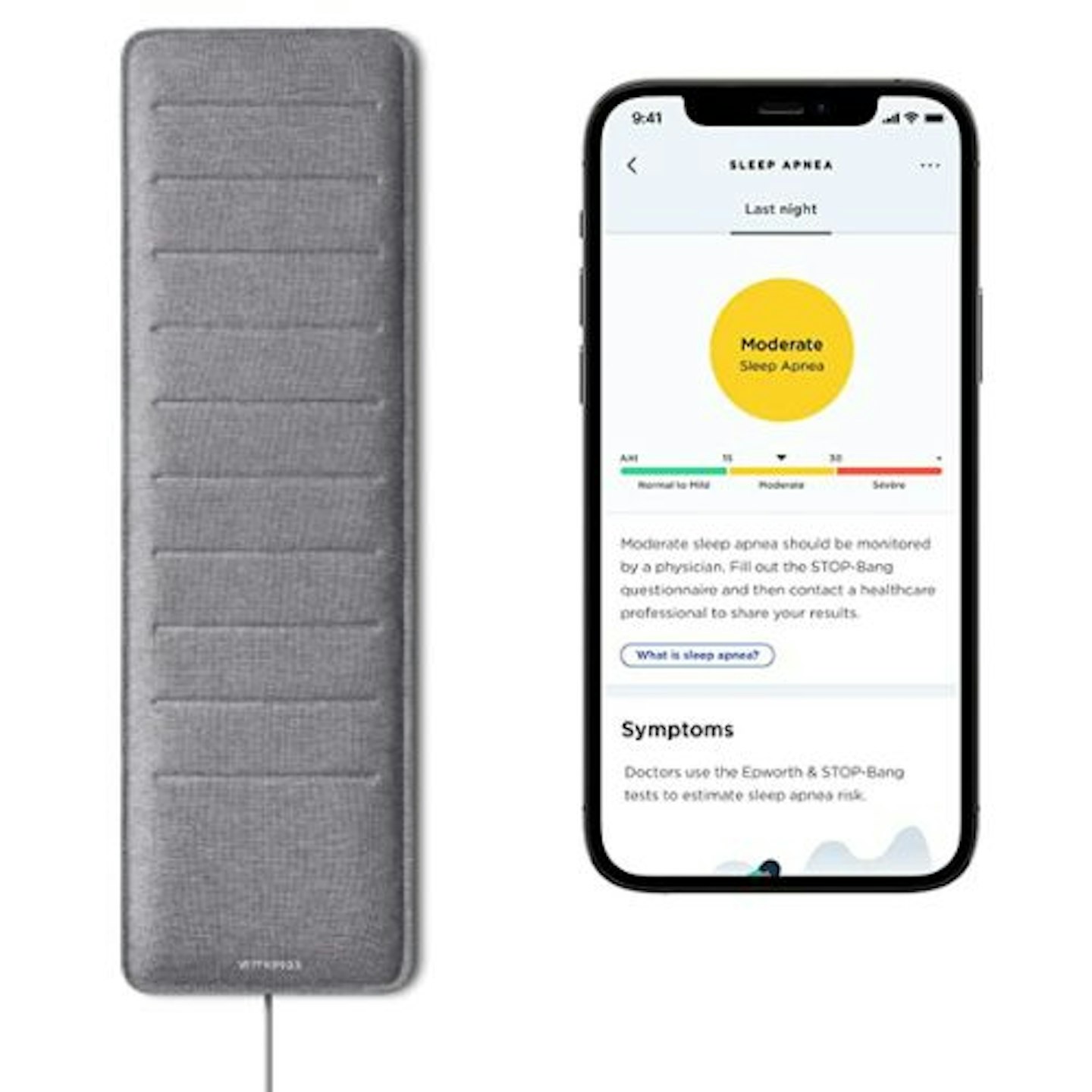If you ever worry about how much sleep you're getting, the best sleep trackers are ideal for monitoring just that. They can also keep you clued up on the quality of your sleep so you can understand what's happening to your body while you're having forty winks.
If you feel like you could benefit from monitoring your sleep, we've rounded up some of the best sleep trackers you can buy online. They range from monitors you wear on your wrist to trackers that sit in your bed so you can pick the one you would be most comfortable using.
Best sleep trackers at a glance
• Best for still sleepers: Fitbit Charge 3 Advanced Fitness Tracker - view on Amazon UK
• Best slimline sleep tracker: Garmin Vivosmart 5 Smart Activity Tracker - view at John Lewis
• Most unnoticeable sleep tracker: Withings Sleep Analyzer - view on Amazon UK
But, how do sleep trackers track sleep? Sleep trackers work by monitoring your body movements and periods of inactivity to determine how much sleep you are getting. Heart rate tracking is also used to identify sleep patterns. Your heart rate will be at its lowest when you're sleeping so if your heart rate changes during this time, it can be linked to the quality of your sleep. When you're in a deep sleep, your heart rate will be lower than when you're in a light sleep.
You may also experience spikes in your heart rate when you're dreaming, during what is known as REM sleep, and when you're restless. The best sleep trackers will monitor this and provide an analysis of time spent in each sleep stage so you can recognise patterns and potentially make changes to improve your snooze time. Some sleep trackers take note of your respiratory rate and your blood oxygen levels to get a more accurate picture of your slumber.
Best sleep trackers
Best for still sleepers
A sleep monitor, calorie tracker, and heart rate monitor all in one. With this Fitbit Charge 3 Advanced Fitness Tracker, you'll get a better understanding of your sleep quality with daily insights. If you're someone who doesn't tend to move around a lot when you're sleeping, you can change the sleep tracking sensitivity for it to pick up even the subtlest of movements.
Our review: "I bought this as a Christmas present around three years ago and I've been obsessed with tracking my sleep on it ever since. I was going through a spell of always being tired and couldn't work out why. This tracker made me realise that because I was going to bed so late, I wasn't getting a getting enough sleep and the quality of it was rubbish too.
"The Fitbit app clearly displays what time I go to bed each night as well as when I wake up. I can also see whether I was in light, deep, and REM sleep, plus any times I was awake during the night. Now whenever I feel like I've had a bad night's sleep, I go straight to my app as the data usually confirms what went wrong for me."
Pros
- You can set bedtime reminders to help you work towards a more consistent sleep routine
- Get a better understanding of your sleep quality, get helpful insights about each night
- Built swim-proof and water resistant to 50M, Charge 3 can be worn in shower
Cons
- You have to pay for Fitbit premium to access a more detailed sleep report compared to what is included with the free plan
Best slimline sleep tracker
This Garmin Vivosmart 5 Smart Activity Tracker is sleek and stylish, with its slim line design and berry and rose gold colouring. It will track all stages of sleep and it has a Pulse Ox sensor built in to gauge blood oxygen saturation levels. Of course, there's so much more this tracker can do, including stress and fitness tracking, as well as displaying calls and text messages from your smartphone.
Customer review: "I bought myself this watch after my Fitbit gave up the ghost! I like the simplicity especially for beginners and that it is not chunky on my slim wrist. Although it might need more frequent charging than my previous model, it doesn't take long to charge. It also works with my simple Apple phone and doesn't need the latest model to function. I like it and it does what I need. I would recommend it and I might buy one for someone as a gift.",
Pros
- Loaded with features to track your activity throughout the day and your sleep quality
- Heart rate, stress tracking and Body Battery energy monitoring help you stay informed,
- Smart notifications help you keep connected with a compatible smartphone
Cons
- May not fit your wrist
Most unnoticeable sleep tracker
If you love the idea of tracking your sleep but hate the thought of having to wear any devices for monitoring, this is the tracker for you. The pad slips under your mattress to get insights into your sleep so you won't even know it's there. It'll detect your heart rate and sleep cycle to deliver a 'sleep diary' on the app.
Our review: "This has been really helpful for me to work out why I am always tired. You don’t feel it and there is nothing to do for a continuous monitoring of sleep. The app gives really detailed output of how you are sleeping and gives specifics around duration, depth, regularity, sleep apnea, interruptions and snoring and also hooks up with other data to look at correlation and cause. Clever bit of kit!"
Pros
- Your voice can help you manage your sleep with Alexa
- Detects sleep apnea with medical-grade precision and determines its severity
- Track your heart rate continuously all night long
Cons
- Could pick up data from another sleeper if you share a bed
Best sleep trackers FAQs
What are the different stages of sleep?
We all know that we need to aim to get between seven and eight hours of sleep every night. Of course, we should try to get the right amount of shut-eye, but the quality of the sleep we're getting is also important. The Sleep Foundation identifies four separate sleep stages, with each one playing a vital part in getting high-quality sleep.
Stage one - awake/dozing off
Think of this stage as being not quite asleep but not quite awake. It usually lasts a couple of minutes as your body and brain activity start to slow down to prepare you for sleep. You can easily be woken if you're disturbed, but if you're not interrupted, you'll move onto stage two in no time at all.
Stage two - light sleep
Your body will enter a more subdued state during this time. Your core temperature will drop, your muscles become relaxed and your breathing and heart rate slow down. When you first drift off, you'll spend around 10-25 minutes in this stage before moving on to the next. However, you will revisit this stage multiple times throughout the night. Typically, every person will spend around half their time asleep in stage two.

Stage three - deep sleep
It is harder to be woken up in this phase of sleep. Your muscle tone and breathing rate decrease even further as your body relaxes more. Experts believe this stage is critical to restorative sleep as it allows bodily recovery and growth. It may also bolster the immune system and other key bodily processes. Each cycle of this stage of sleep is between 10 to 60 minutes at a time.
Stage four - REM sleep
During REM sleep, brain activity picks up, nearing levels seen when you're awake. At the same time, the body experiences a temporary paralysis of the muscles, with two exceptions: the eyes and the muscles that control breathing. Even though your eyes are closed, they can be seen moving quickly. It is believed this stage of sleep is essential to cognitive functions, like memory, learning, and creativity. You'll also experience the most vivid dreams during this stage of sleep. You won't usually experience REM sleep until you've been asleep for around 90 minutes, but it will make up around 25 per cent of your time asleep.
You can use sleep trackers to keep tabs on how long you're in each stage. They will also help you identify whether there may be any medical issues that need investigating. Plus any external factors which are stopping you from reaching your full sleep potential.
Are sleep trackers accurate?
For day-to-day tracking, sleep trackers are fairly accurate. However, if you're worried you have sleep-related conditions, such as sleep apnoea, you should always consult your GP. Sleep trackers aren't actually directly measuring your sleep, they're measuring the factors that change while you're sleeping. For the most accurate sleep analysis, you'll need to have a medical sleep study, conducted by a professional. This will measure your brain activity during your sleep cycle in addition to what a sleep tracker can do.
Rosie Floyd is a Pets, Homes and Garden Product Writer for Yours, Take A Break Pets, Modern Gardens and A Modern Kitchen, specialising in everything from home appliances to pet food. After completing her Journalism & Media degree from Coventry University back in 2015, she started her career writing about must-visit holiday destinations, moving on to creating content around outdoor living and garden buildings, before joining the team at Bauer.

